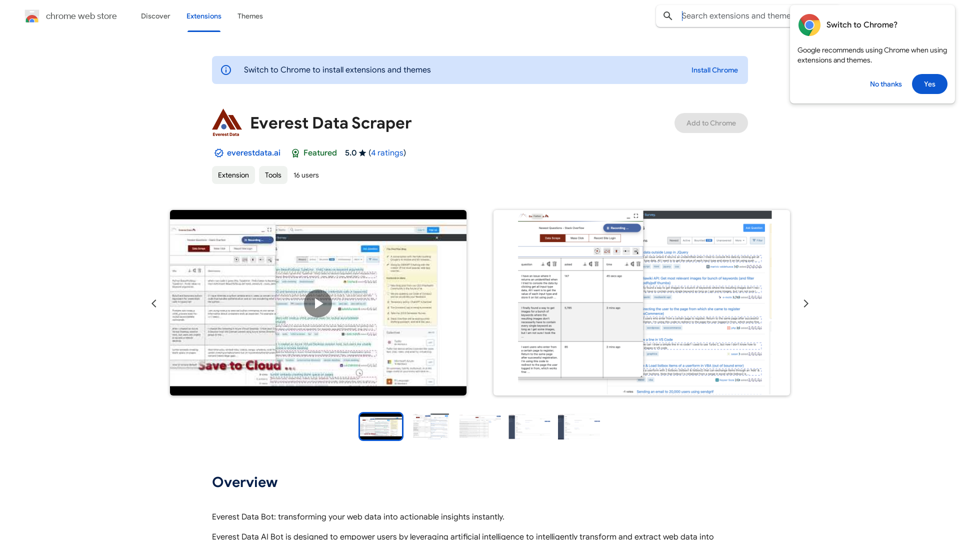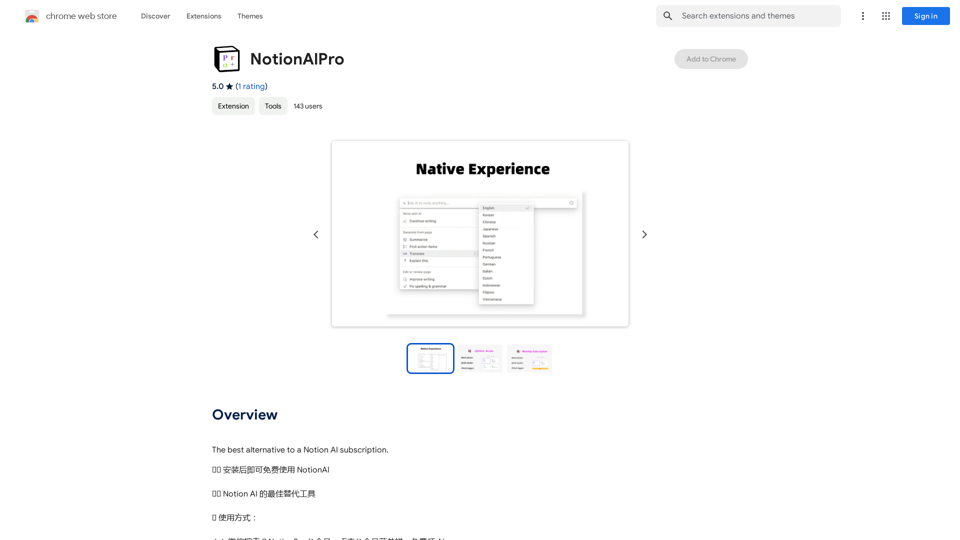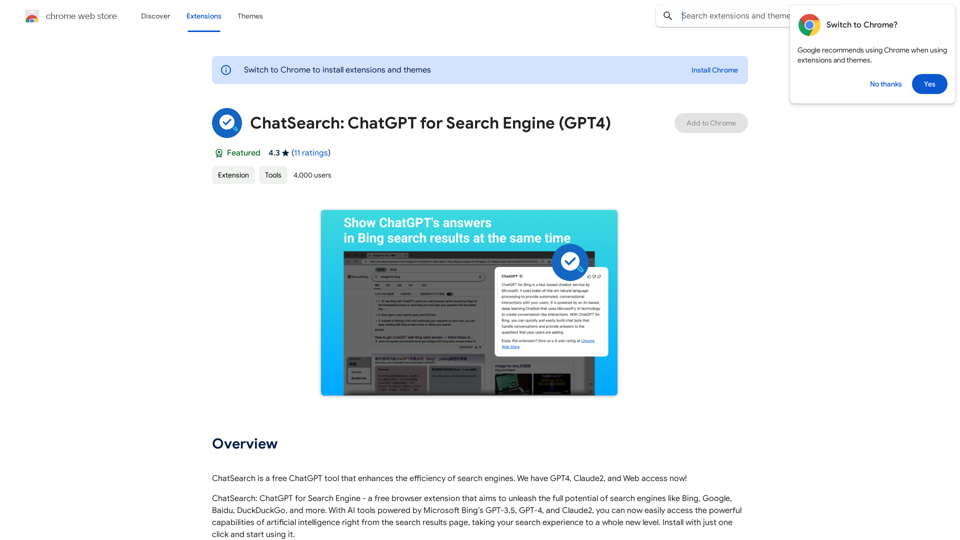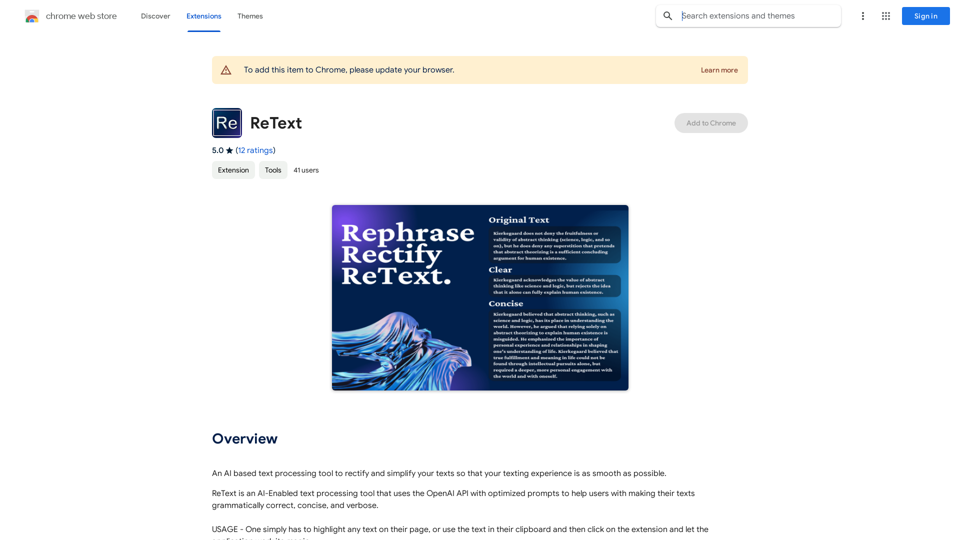The AI YouTube Title Generator is a powerful tool designed to simplify the process of creating effective and SEO-optimized titles for YouTube videos. By leveraging artificial intelligence, it predicts titles that will resonate with target audiences and stand out in search results. This free Chrome extension offers data-driven insights and suggestions, helping creators eliminate guesswork and unlock opportunities for channel growth and monetization.
Free AI YouTube Title Generator: Boost Your Views
Free AI YouTube Title Generator to Get More Clicks. Perfect for Creators Needing Catchy Titles! Improve SEO & Engage More Viewers.
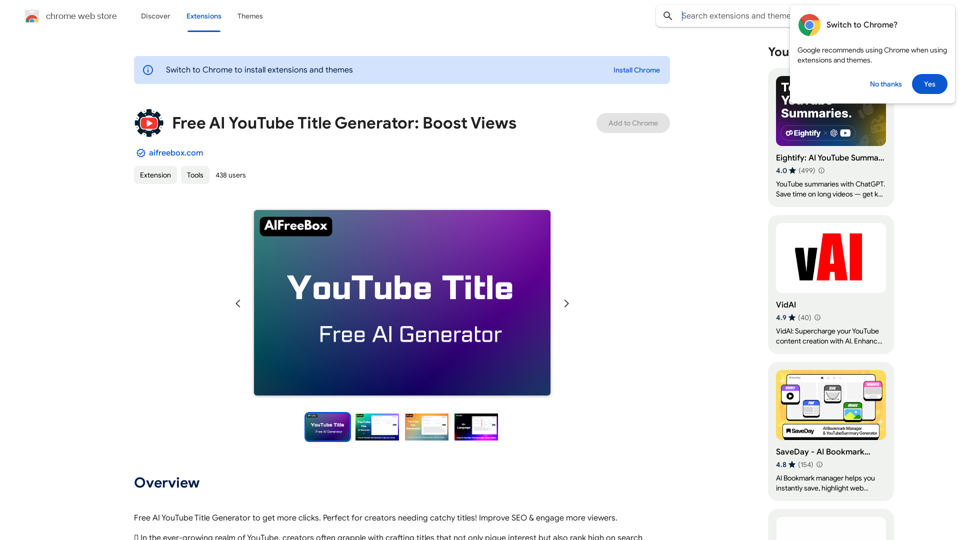
Introduction
Feature
Eliminate Guesswork
The tool provides data-driven insights and suggestions, ensuring that video titles are both engaging and SEO-optimized to reach a broader audience.
Unlock Opportunities
With optimized titles, creators can experience an increase in views, subscribers, and overall channel growth, leading to more opportunities and potential monetization.
AI-Powered Predictions
The generator uses artificial intelligence to predict titles that will resonate with the target audience and stand out in search results.
Free Chrome Extension
Available as a free extension from the Chrome Web Store, making it accessible to all YouTube creators.
Commercial Use
The tool can be used for commercial purposes, allowing creators to generate titles for their YouTube videos without restrictions.
Data Privacy
The developer has disclosed that user data will not be collected or used for training purposes, ensuring privacy and security.
FAQ
How does the AI YouTube Title Generator work?
The AI YouTube Title Generator leverages artificial intelligence to predict titles that will resonate with your target audience and stand out in search results. It offers data-driven insights and suggestions to ensure your video titles are engaging and SEO-optimized.
How can I maximize my use of the AI YouTube Title Generator?
To maximize your use of the tool:
- Use it regularly to generate potential titles for your videos
- Experiment with different keywords and phrases
- Analyze competitors' titles to identify market gaps
What is the cost of the AI YouTube Title Generator?
The AI YouTube Title Generator is a free extension available for download from the Chrome Web Store.
Is my data used for training purposes?
No, the developer has disclosed that they will not collect or use your data for any purpose.
Can I use the AI YouTube Title Generator for commercial purposes?
Yes, the tool is available for commercial use and can be used to generate titles for your YouTube videos without restrictions.
How do I get started with the AI YouTube Title Generator?
To get started, simply download the extension from the Chrome Web Store and follow the prompts to begin using the tool.
Latest Traffic Insights
Monthly Visits
193.90 M
Bounce Rate
56.27%
Pages Per Visit
2.71
Time on Site(s)
115.91
Global Rank
-
Country Rank
-
Recent Visits
Traffic Sources
- Social Media:0.48%
- Paid Referrals:0.55%
- Email:0.15%
- Referrals:12.81%
- Search Engines:16.21%
- Direct:69.81%
Related Websites
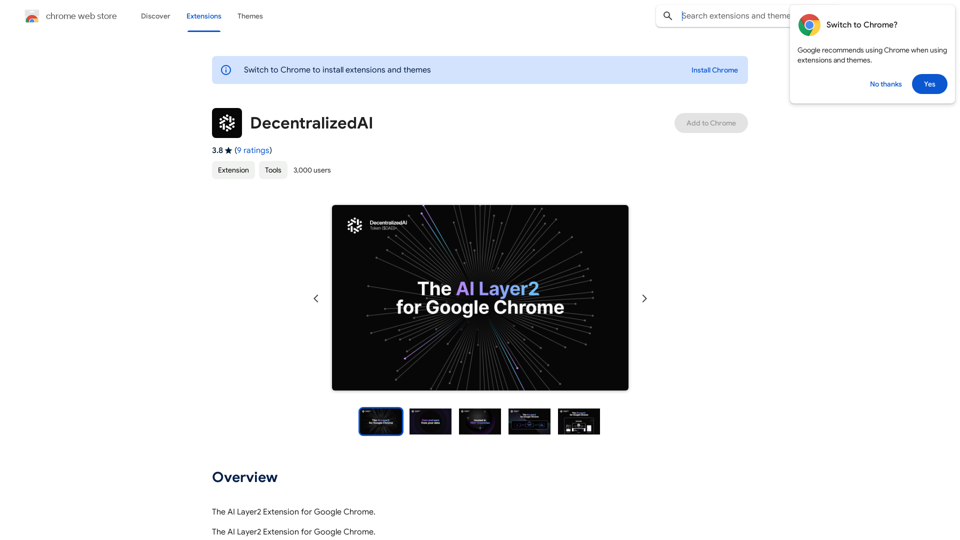
DecentralizedAI This is a general term referring to artificial intelligence (AI) systems that are not controlled by a single, centralized entity. Instead of relying on a large corporation or government to manage and govern AI, decentralized AI aims to distribute these capabilities across a network of independent nodes. Think of it like a blockchain for AI: * Transparency: The decision-making processes of decentralized AI are open and visible to everyone. * Security: Since there's no single point of failure, it's harder for malicious actors to take control or manipulate the system. * Resilience: Even if some nodes go offline, the network can continue to function. * Accessibility: Decentralized AI can make AI technology more accessible to individuals and smaller organizations. There are many potential applications for decentralized AI, including: * Data privacy: Decentralized AI can help protect user data by distributing it across multiple nodes. * Fairness and bias mitigation: By involving a wider range of participants in the training process, decentralized AI can help reduce bias in AI systems. * Autonomous organizations: Decentralized AI can be used to create self-governing organizations that operate without human intervention. Decentralized AI is still a relatively new field, but it has the potential to revolutionize the way we develop and use AI.
DecentralizedAI This is a general term referring to artificial intelligence (AI) systems that are not controlled by a single, centralized entity. Instead of relying on a large corporation or government to manage and govern AI, decentralized AI aims to distribute these capabilities across a network of independent nodes. Think of it like a blockchain for AI: * Transparency: The decision-making processes of decentralized AI are open and visible to everyone. * Security: Since there's no single point of failure, it's harder for malicious actors to take control or manipulate the system. * Resilience: Even if some nodes go offline, the network can continue to function. * Accessibility: Decentralized AI can make AI technology more accessible to individuals and smaller organizations. There are many potential applications for decentralized AI, including: * Data privacy: Decentralized AI can help protect user data by distributing it across multiple nodes. * Fairness and bias mitigation: By involving a wider range of participants in the training process, decentralized AI can help reduce bias in AI systems. * Autonomous organizations: Decentralized AI can be used to create self-governing organizations that operate without human intervention. Decentralized AI is still a relatively new field, but it has the potential to revolutionize the way we develop and use AI.The AI Layer2 Extension for Google Chrome.
193.90 M
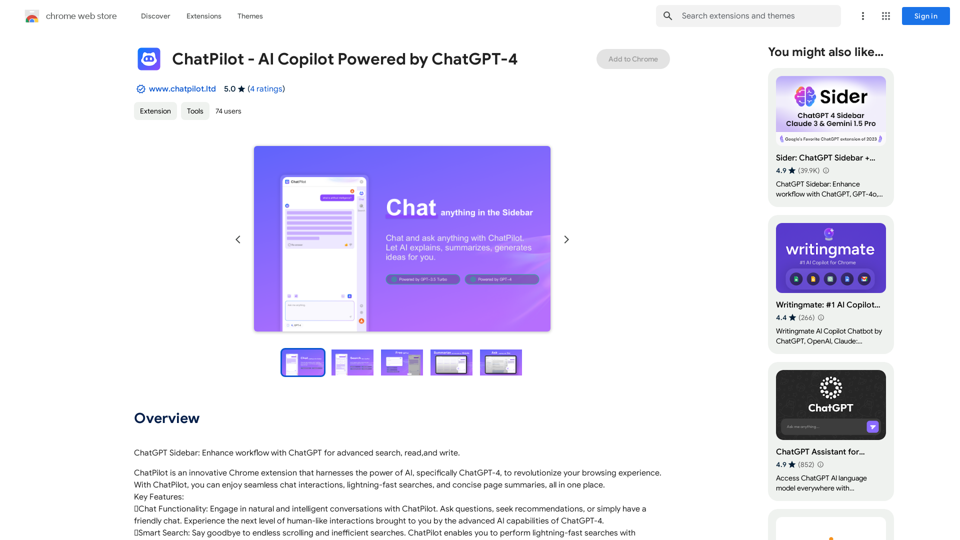
ChatGPT Sidebar: Improve your workflow with ChatGPT for advanced searching, reading, and writing.
193.90 M
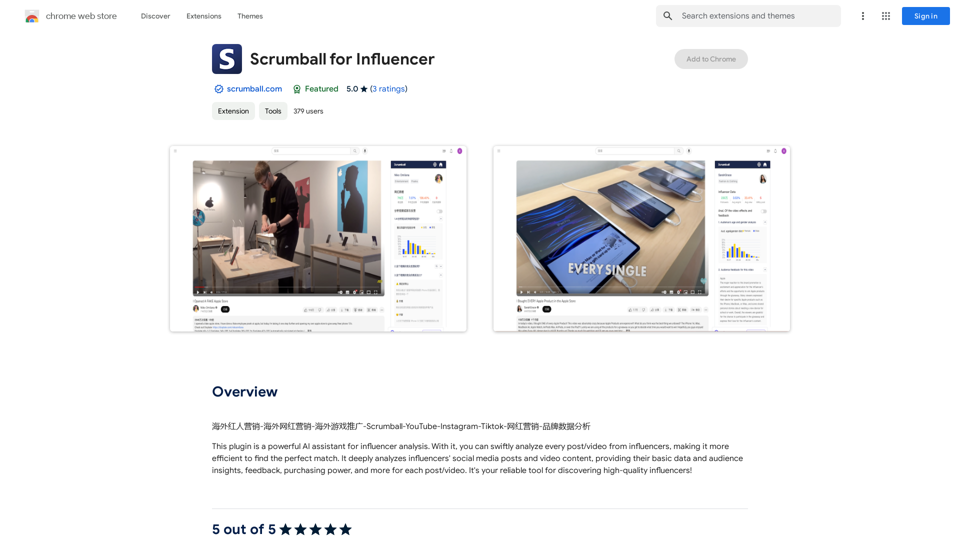
Overseas Influencer Marketing - Overseas Internet Celebrity Marketing - Overseas Game Promotion - Scrumball - YouTube - Instagram - Tiktok - Internet Celebrity Marketing - Brand Data Analysis
193.90 M
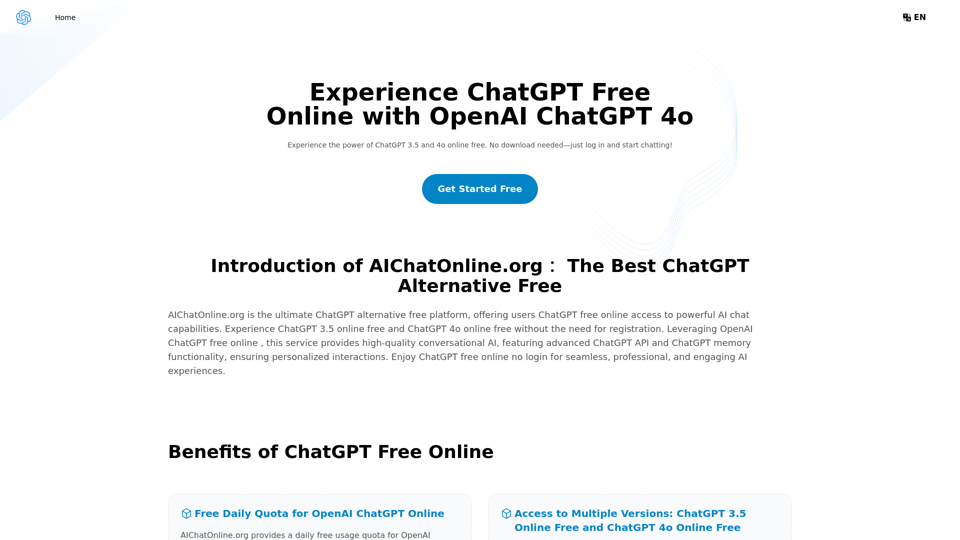
The Free Alternative to ChatGPT Powered by 4o | AIChatOnline.org
The Free Alternative to ChatGPT Powered by 4o | AIChatOnline.orgDiscover AIChatOnline.org, your ultimate platform for free online access to ChatGPT. Enjoy ChatGPT 3.5 online for free and ChatGPT 4 online for free, with no registration required. Take advantage of OpenAI's free online ChatGPT for advanced AI capabilities, including ChatGPT memory and ChatGPT API integration.
70.11 K
